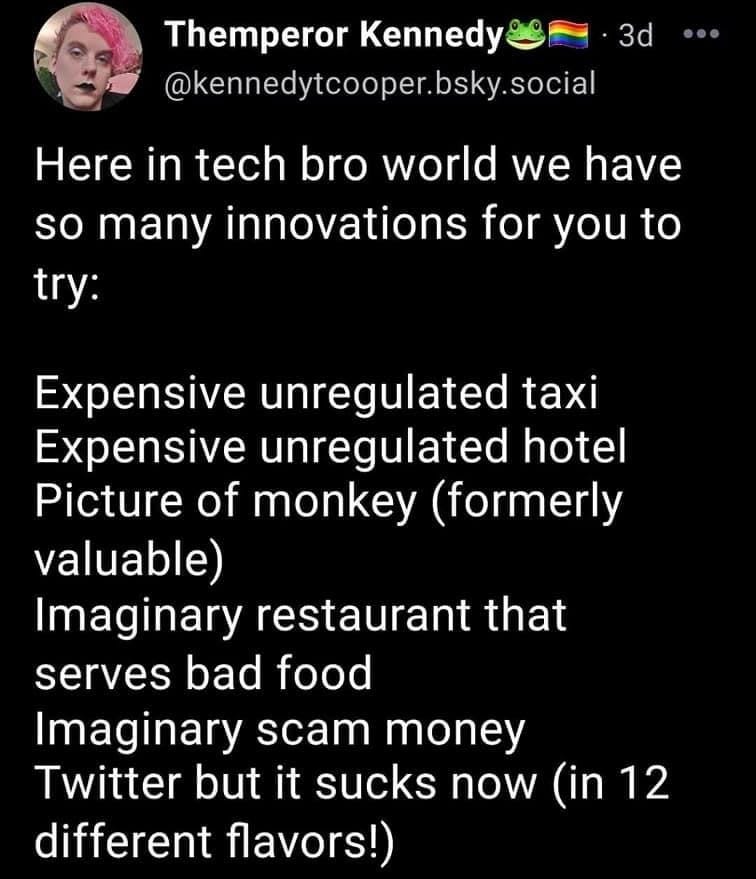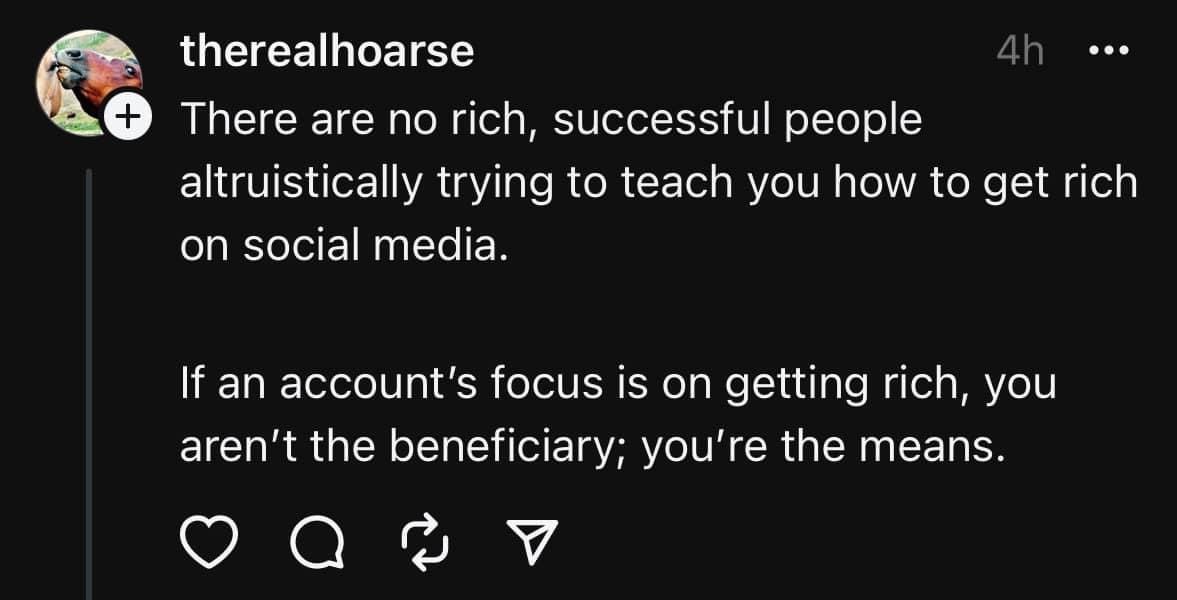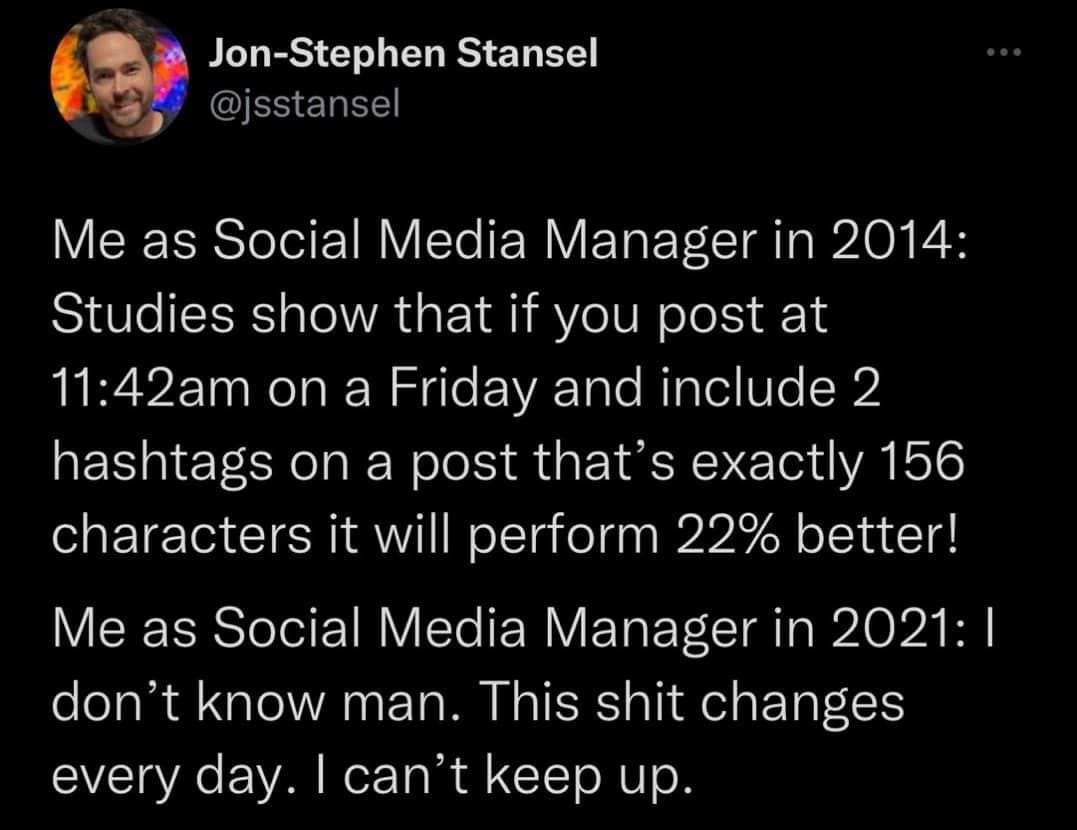I hate to be the one to tell you this, but Substack is just longform social media.
Listen, I get it. We've all been burned by the social media platforms. We're tired of algorithms determining what our audiences see. We're done with constantly shifting features and mysterious "reach" calculations.
We want to own our content, control our distribution, and actually reach the people who want to hear from us.
And Substack feels different, right? It feels more legitimate somehow. More professional. Like we're real writers now, not just "content creators."
But here's the thing: Substack is still social media. It's just operating on a different timescale.
Think about it. What makes something social media?
Likes and shares? Substack has those (hearts and restacks).
Comments and engagement? Check.
Algorithmic recommendations? Yep, look at your homepage.
The dopamine hit of notifications? Open your Substack app.
A feed of content from people you follow? Scroll through your inbox.
The only real difference is the length of the content and the pace of engagement. Instead of rapid-fire posts and instant reactions, we're dealing with longer pieces and slower response cycles. But the fundamental dynamics? They're exactly the same.
This isn't necessarily a bad thing.
Social media, at its core, is about connection and distribution. It's about finding your people and sharing your ideas with them. Substack just allows us to do this at greater length and (arguably) with more depth.
It’s the closest thing I’ve ever gotten to Google’s Feed Reader (which I will NEVER forgive them for getting rid of).
But we need to be honest about what we're doing here.
Because when we pretend Substack is something entirely different from social media, we miss both its actual strengths and its very real limitations. We set ourselves up for the same disappointments, just on a different timeline.
The truth is, Substack is incredibly good at what it does.
It's an excellent platform for longform social engagement. It gives us space to develop ideas fully, build deeper connections with our audiences, and yes, actually own our content (to an extent).
But it's still a platform. It still has algorithms. It still runs on engagement metrics (and it is proud of that fact). It still wants to keep us producing content and our readers consuming it.
And that's okay! We just need to be clear-eyed about it.
Here's what this means practically:
Your Substack strategy should acknowledge its social nature. Don't just write and publish—engage with other writers, build relationships, participate in the ecosystem.
Recognize that the same social media principles apply. Consistency matters. Engagement drives growth. Building genuine connections with your audience is key.
Don't put all your eggs in this basket. Yes, you can download your email list. But platforms change. Remember when Medium was the future of writing?
Use it for what it's good at: longform social engagement. This is where Substack shines - in creating space for deeper conversations and more nuanced ideas.
Keep your expectations realistic. Substack isn't going to magically solve all the problems we have with social media. It just presents them in a different format.
The real opportunity here isn't in pretending Substack is something it's not. It's in understanding exactly what it is and using it intentionally.
Because here's the exciting part: When we acknowledge Substack as longform social media, we can start using it more effectively. We can stop trying to force it to be something it's not and start leveraging what it actually is—a powerful platform for extended social engagement and idea distribution.
So yes, Substack is social media. But maybe that's exactly what makes it valuable.
The question isn't whether we should use it (that's a personal choice), but how we can use it intentionally, with clear eyes about what it is and isn't.
After all, the best tools are the ones we understand clearly enough to use well.
Speaking of using platforms intentionally—want to turn your content into something that truly belongs to you? Join me in January for the next cohort of Podcast to Published, where we'll transform your expertise into a complete content ecosystem that you actually own. No algorithms, no platform dependence, just your brilliance distributed exactly how you want it.
We'll spend Q1 turning your knowledge into your magnum opus—the foundations and pillars that people need to understand before they work with you. Then we'll help you create hundreds of pieces of content from it, building your omnichannel marketing plan.
Ready to own your content destiny? Apply here.









Thank you.
This is the brief I have been wanting to write.